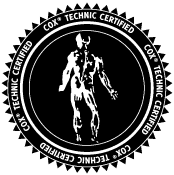Johnson Chiropractic Sees Disc Disease in Young People
“You’re young! You do not have to worry about back pain.” Not true! New research shows that young and old alike must contend with disc degeneration. Most of us will personally have to deal with disc degeneration’s pain at some point in our lives…or take care of a loved one dealing with its back pain or neck pain complications. Johnson Chiropractic is here for young and old alike when Richmond disc degeneration interferes with your life.
DDD STARTS EARLIER THAN ONCE THOUGHT
It’s hard to believe, but it is reported in the medical literature. Disc degeneration begins in the late teens! A study of 18-20 year old healthy air force cadets discovered that 77% showed disc degeneration or disc herniation. (1) That is new news! It has been written elsewhere that disc degeneration starts at age 20. Now it’s found to rear its head in 18 year olds! In this project MRIs were taken of all cadets. None of the cadets reported spine pain. The MRIs revealed that: 30% showed at least one disc’s dehydrating, 13% disc narrowing, 49% disc bulging, 18% disc protruding, 8% disc extruding, 13% with spondylolisthesis, and less than 1% even had asymptomatic vertebral fractures. These results in young, seemingly healthy people are similar to what would be expected in adults. (1) It is never too early to start paying attention to the spine! Johnson Chiropractic takes care of spines at all ages via spinal manipulation, nutrition and exercise.
WHY?
Researchers (and parents) wonder “why?” Why does lumbar spine disc degeneration or cervical spine disc degeneration start so early? It may be genetic. 80% of patients in a new study had mutations in their collagen-encoding genes. Collagen is vital to disc and joint health. Back pain sufferers with a lumbar disc herniation showed two variants in their gene encoding for aggrecan, a protein that the end plate depends on for load-bearing. Such a mutation influences the nucleus pulposus, annulus fibrosus and end plates. (2) Of course, the whole reason about why a disc degenerates is not fully known yet. Johnson Chiropractic does have ways to contain and relieve the pain of a Richmond degenerated disc.
INTERRUPTING DISC DEGENERATION, PROMOTING DISC REGENERATION
Researchers explained disc degeneration as a complex connection of mechanical, biochemical, and structural alterations at the cellular level, cells that exist in an abnormal mechanical environment. Regeneration of such cells would demand very specific conditions and wouldn’t always be possible. However, traction of 2 to 6 weeks was found to be a responsive time for regeneration of a degenerated disc. The researchers propose that this could interrupt the above explained cascade of changes. (3) Johnson Chiropractic uses Cox® Technic to gently produce a positive environment for the healing of degenerated discs by enhancing the area of the spinal canal by 28%, increasing the height of the disc by 17%, and decreasing intradiscal pressures to as low as -192mmHg in the low back and dropping pressures in the cervical spine by a mean pressure as much as 1265 mmHg. (4,5) Johnson Chiropractic bolsters the Cox® Technic system of spinal pain management by adding spinal nutrition (particularly disc nutrition supplementation) and exercise to optimize the relief and clinical outcome for Richmond back pain patients.
CONTACT Johnson Chiropractic
Listen to this PODCAST with Dr. Paxton Schofield on The Back Doctors’ Podcast with Dr. Michael Johnson who presented his care of arthritis and degeneration with Cox® Technic.
Schedule your Richmond chiropractic appointment at Johnson Chiropractic for your spine’s health. You may not be as young as you think for back pain, and you are certainly not too young to take care of your spine. A Richmond chiropractic treatment plan of spinal manipulation, nutrition and exercise can benefit all ages of back pain and neck pain sufferers struggling with disc degeneration.


